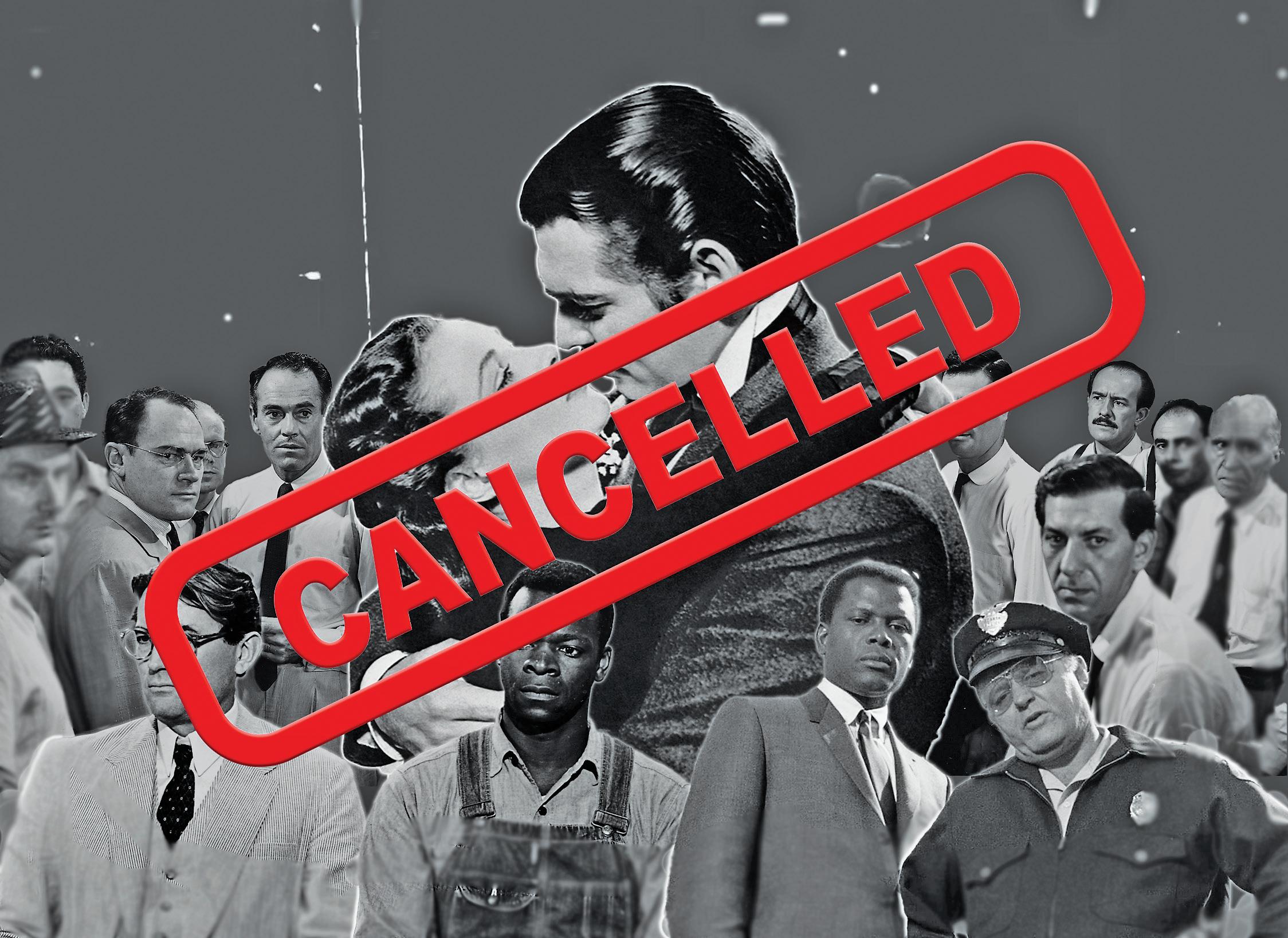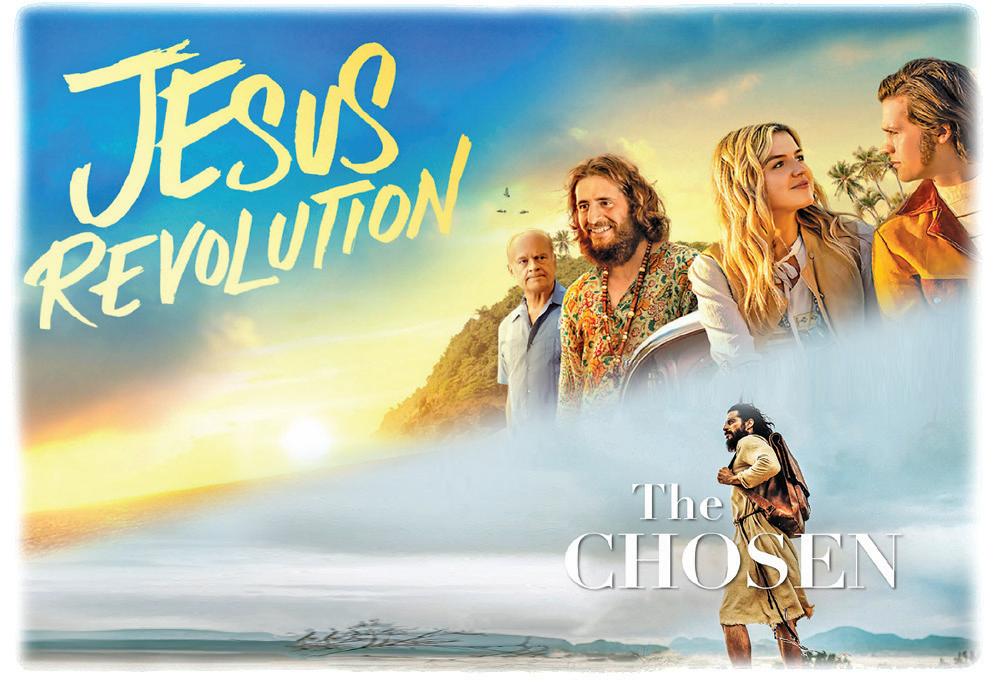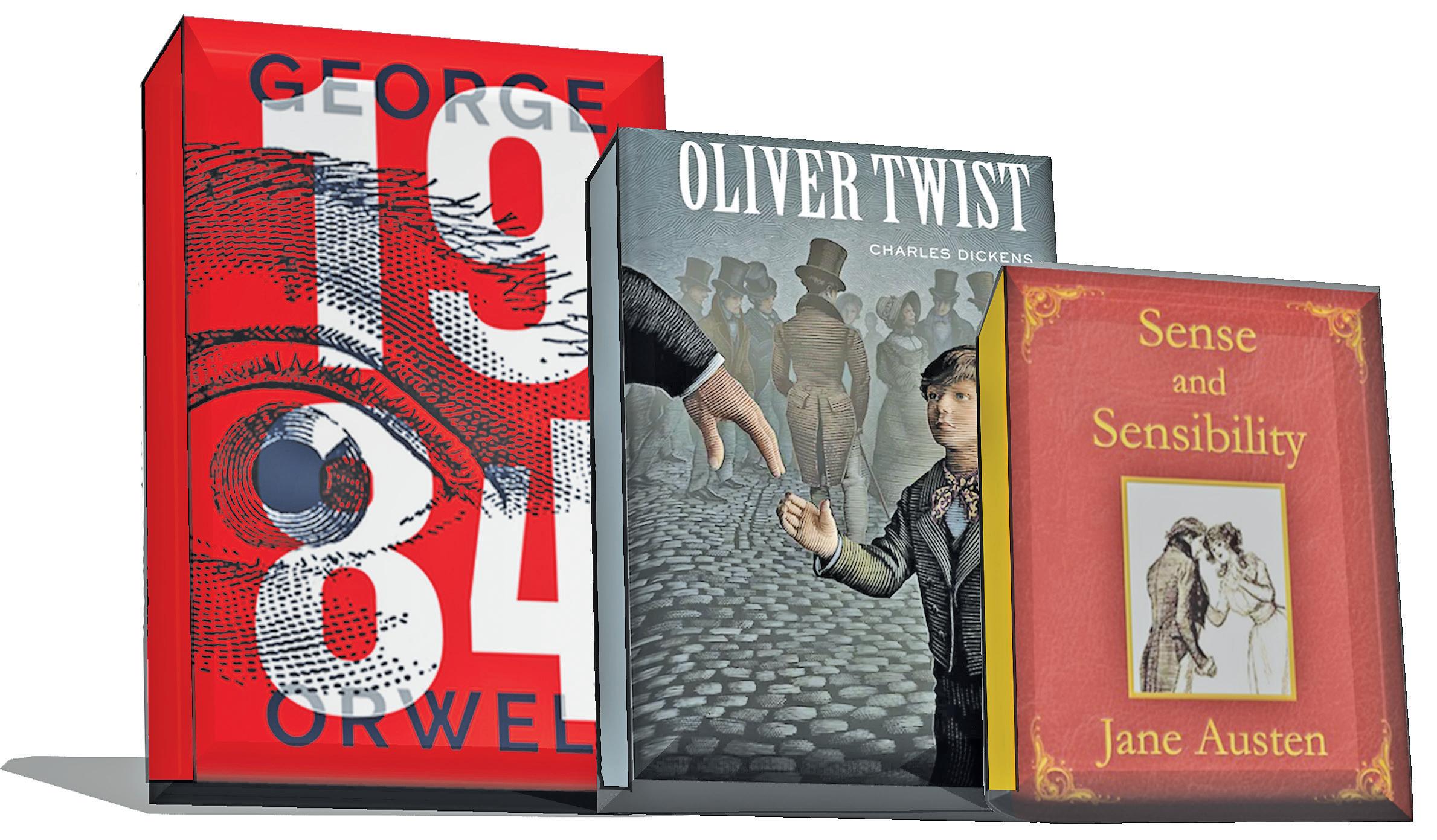
5 minute read
Saving classic movies from cancel culture
BY DAIMLER KOCH
THE MIRROR ONLINE EDITOR-IN-CHIEF
Advertisement
From Kanye West to J.K. Rowling, cancel culture has become the norm of our generation. It is common for individuals, groups and corporations that make bigoted statements or claims to be disavowed by society, usually via social media.
Most age-old films have subversive messages that promote racism and sexism, but under no circumstances can they be canceled.
Many classic films released between 1900 and 1970 rely on what are, by today’s standards, outdated notions concerning race and sex. And yet, these movies – like “The Searchers,” where John Wayne’s character mistreats Native Americans, and “The Jazz Singer,” where Al Jolson uses blackface to portray an African-American musician – are still available to watch today via streaming platforms.
Over three-and-a-half hours long, the 1939 film “Gone With the Wind” covers the tumultuous adult life of Scarlett O’Hara (Vivien Leigh) as she navigates her complicated romances and ultimately grows into an independent young woman.
The film’s controversies, however, don’t concern the main plotline. Rather, the main issues are the film’s setting and subversive messaging. “Gone With the Wind” takes place in the American South before, during and after the Civil War. As such, the film has been heavily criticized for upholding the Old South and supporting the notion of the Lost Cause –a historical myth that attempts to sugarcoat slavery and justify the South’s secession and resistance to postwar Reconstruction.
This narrative was developed by former Confederates shortly after the Civil War ended in 1864.
Viewing the film today, it’s not difficult to see why the arguments for canceling this movie are completely valid. Many scenes within the movie depict slaves picking cotton in the fields, singing happily as if they were enjoying their work. O’Hara’s slaves are joyfully loyal to her, even promising to prevent General Sherman’s invasion of Atlanta if they could. And as O’Hara’s character slowly progresses and becomes more proactive, she, angry at one of her slaves, punches them in an effort to send the enslaved woman out on her errand.
These moments, and many more, make
“Gone With the Wind” extremely difficult to watch at times.
This isn’t an isolated incident, either. A plethora of classic films express some form of racism, sexism or just downright bigotry. “Breakfast at Tiffany’s” features a stereotypical Asian character played by Mickey Rooney for comedic purposes, and “Seven Brides for Seven Brothers” has seven brothers kidnap seven women.
Some aspects of cancel culture are occasionally useful. It allows minorities to express
Box office redemption
The light of the Christian entertainment industry is growing brighter amidst Hollywood’s profane productions.
BY ABIGAIL KIM
THE MIRROR STAFF
Movies and shows are the storytellers of America and its values. The film industry has woven the most iconic love stories, produced explosive action shots, dropped iconic lines from unforgettable characters and captured the moving truths of Christianity. Yes, Christianity.
A recent shift in the entertainment industry has radically transformed the appeal of Christian filmmaking. The poor acting and holier-than-thou themes exit the picture as raw emotion, exceptional production and riveting storylines are ushered in.
“The Chosen,” directed by Dallas Jenkins, basks in the spotlight of today’s Christian staging. Breathing life into the gospels of the Bible, this mesmerizing TV show captures the life of Jesus the Nazarene and his earthly ministry. “The Chosen” began as a crowd-funded show, but it swiftly emerged as a groundbreaking sensation, knocking several secular films out of the limelight.
On the weekend of Nov. 20, 2022, “The Chosen” premiered the disapproval of offensive stereotypes and language that have been perpetuated by the media for years, if not generations.
However, to cancel certain classic films because of their uncomfortable messages would not do anyone any favors. We need to acknowledge the problems these films present, not bury them in deliberate ignorance. It is because we are confronted with such brazen, normalized displays of racism and sexism that we are able to recognize them for what they truly are and move forward with change as a society.
In fact, it is this very objective that caused an overall shift in films during the ‘50s and ‘60s, as they began to focus on the social issues of the time period.
“To Kill a Mockingbird” and “In the Heat of the Night” both tackle the stubborn prominence of racism in the Jim Crow South. “12 Angry Men” tells the story of how one man, Juror Number Eight, is able to overturn the prejudices and logical biases of the 11 other jurors in a murder trial. And yes, while it does positively promote the Lost Cause to a nauseating degree, “Gone With the Wind” features a strong female protagonist as a representation of the image of liberated woman that was appearing during the 1930s. first two episodes of its third season in theaters. That’s right. This crowd-funded TV show made it onto the big screen, becoming the highest-grossing event of Fathom Events.
It is these classic films that are praised by audiences and critics today. Not those that went along entirely with the societal bigotry of the day, like “Bride of the Gorilla” and “Annie Get Your Gun,” but instead those that spoke up against it and became a model for society to follow even generations later.
Released by Lionsgate in February of 2023, “Jesus Revolution” narrates the historical 1970s Jesus Movement through the eyes of Greg Laurie, a teenager who experiences a radical transformation after his involvement in the movement.
Peace signs, outlandish fashion choices, heavy drug use and sex obsessions are what ‘70s hippies are typically associated with. However, the hippies of the Jesus Movement were united by a mutual passion for Christ. The revolution exploded globally, and historians consider it the greatest spiritual awakening of all time.
With an A+ CinemaScore, $53 million at the box office and a 99 percent average audience score on Rotten Tomatoes, you don’t need a spiritual revelation to realize this film was a crowdpleaser.
In its opening weekend, “The Chosen” swept major Hollywood titles off their feet, generating a substantial $10 million. “She Said,” a dramatic biography starring Gwyneth Paltrow, amassed a mere $2 million in the same weekend.
Boasting over 500 million streams and a 99 percent average audience score on Rotten Tomatoes, it’s clear that “The Chosen” is a captivating production.
“Jesus Revolution,” a similar blockbuster, has also garnered attention for its extraordinary success and undisguised Christian themes.
Just as “The Chosen” knocked Hollywood films out of the ballpark, “Jesus Revolution,” making $15.8 million in its opening weekend, outshone “Hitman’s Wife’s Bodyguard” and “Plane” in a shocking twist.
Successful Jesus films don’t stop at “The Chosen” and “Jesus Revolution.” “God’s Not Dead,” a 2014 drama about proving God’s existence, earned $65 million on a $2 million budget. Similarly, inspired by the Christian band MercyMe, “I Can Only Imagine” produced $86 million on a $7 million budget in 2018. And of course, Mel Gibson’s “The Passion of the Christ” takes the cake as the highest-grossing Christian film of all time, earning $612 million at the box
A revival is stirring in the movie industry, and you don’t want to miss it. With Christian entertainment on the rise, perhaps the door is open for another Jesus Movement in the modern age.

Life-changing or time-wasting?
Here are some of the best literary classics, as well as those that should be burned.











